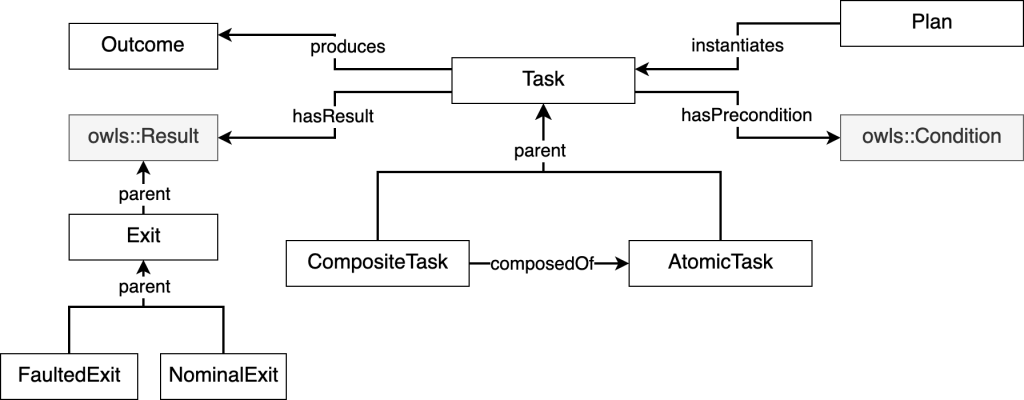We have completed the development of a new standard on ontologies for robotics. In this case we have addressed the specification of concept related to the assignment of tasks to robots to be executed by them
The new IEEE P1872.1 Standard for Robot Task Representation is available in draft status at the IEEE Xplore repository. The purpose of the standard is to provide a robot task ontology for knowledge representation and reasoning in robotics and automation.
This standard defines an ontology that allows the representation, reasoning, and communication of task knowledge in the robotics and automation domain. The ontology includes a list of essential terms and their definitions, attributes, types, structures, properties, constraints, and relationships for planners and designers represent task knowledge allowing them to better communicate among agents in the automated system.

The standard provides a unified way of representing robot task knowledge and provides a common set of terms and definitions structured in a logical theory, allowing for unambiguous knowledge transfer among groups of human, robots, and other artificial systems. It is linked with existent robotics ontologies. Given the recent advancement in robot standards (such as ISO 15066:2016 for collaborative robots or IEEE 1872.2:2022 for autonomous robots), the proper definition and implementation of tasks and task-based robot control has become a key toward advanced human-robot interaction.
Having a shared common robot task representation will also allow for greater reuse of task knowledge among research and development efforts in the same robot domain as well as efforts in different robot domains.
Get the draft of IEEE P1872.1 Standard for Robot Task Representation from IEEE.